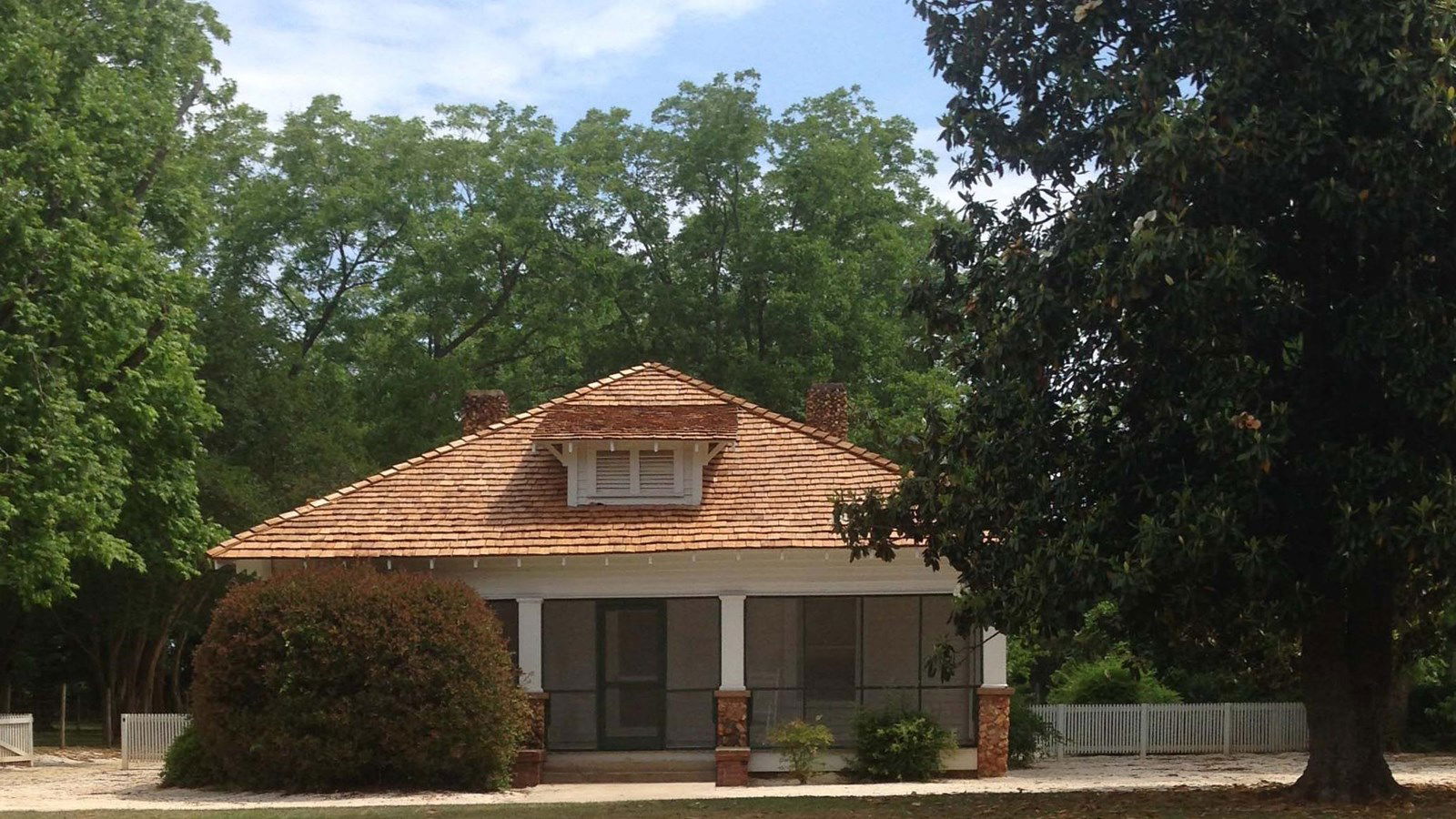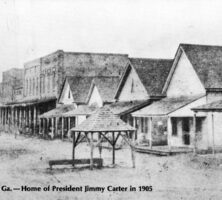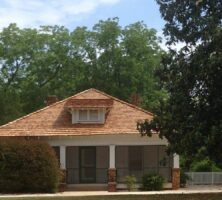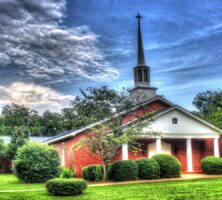Plains, a small Sumter County town in southwest Georgia, is located approximately nine miles west of Americus and thirty-seven miles north of Albany. Situated in the northern part of Georgia’s peanut belt, this farming community’s main crops are corn, cotton, peanuts, and soybeans, although its main industry is tourism. The town is well known as the hometown of U.S. president and Nobel Peace Prize winner Jimmy Carter. According to the 2020 U.S. census, the population of Plains was 573.
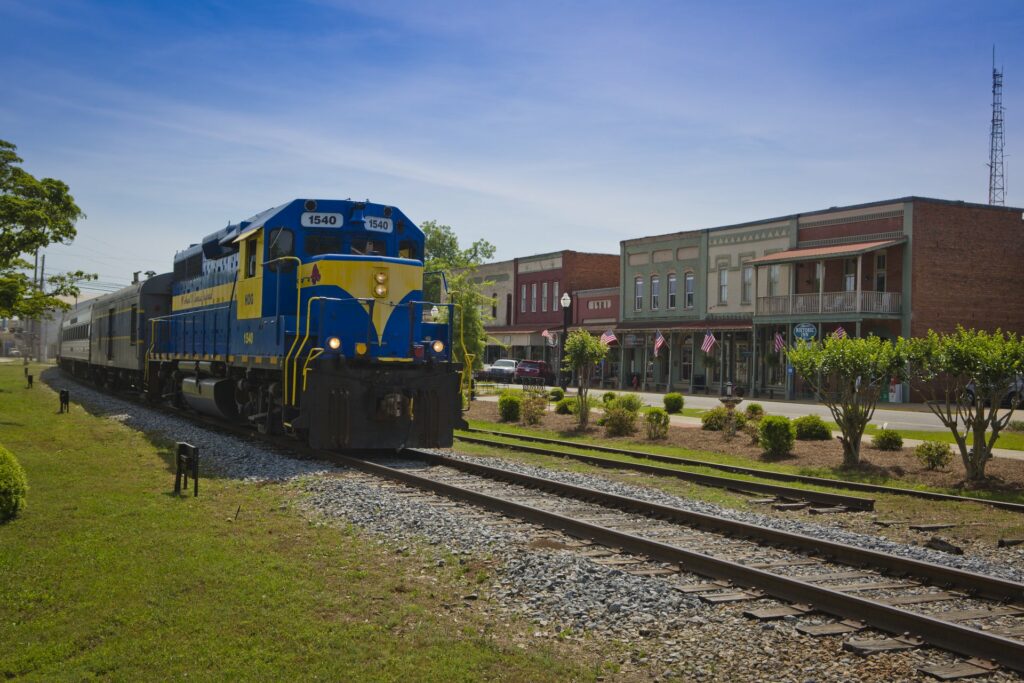
Plains was founded in 1827 after federal authorities forced out Creek Indians under the Treaty of Washington, and was located one mile north of its present site. The surrounding land is flat, and Plains was originally called the Plains of Dura, after the biblical place.
In 1884 a thirty-seven-mile railroad connecting Americus, Preston, and Lumpkin, was built as a more convenient way for getting cotton to market. Plains moved one mile south to a site on the newly built railroad in 1885. That same year, the small town’s business section burgeoned, but Plains was not officially incorporated until 1896. A railroad depot station was built in 1888.
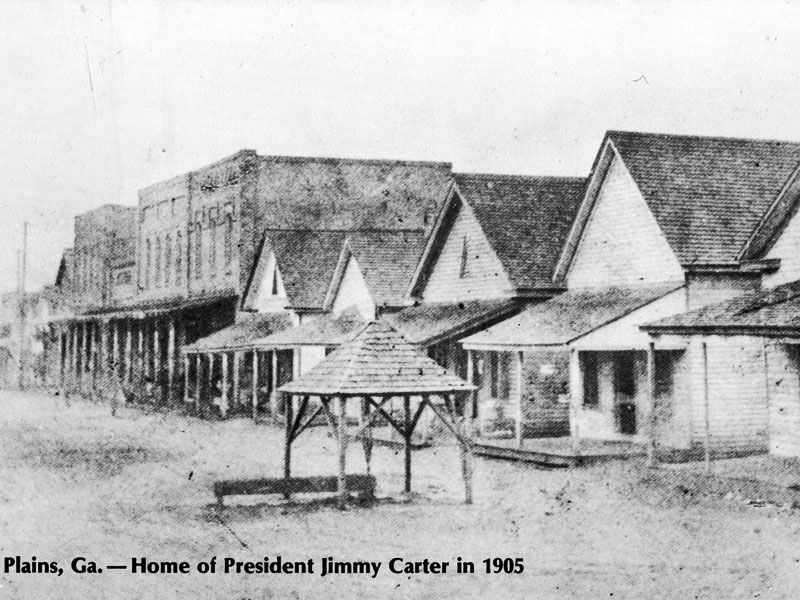
Like most farming communities in the South, Plains subsisted mainly on cotton production until 1915, when farmers were forced to find another crash crop after the boll weevil infestation substantially reduced cotton acreage. Largely due to the work of George Washington Carver, an African American agricultural scientist who taught at Tuskegee Institute in Alabama, there was a large shift toward peanut farming in Georgia. Plains is still known for its peanut production, which is celebrated in the annual Plains Peanut Festival held each fall.
In addition to the peanut industry, Plains was at one time recognized for its prestigious medical community. In the early 1900s three doctors who were also brothers, Samuel Paul Wise, Bowman J. Wise, and Burr Thaddeus Wise, a pioneer in surgery and radium therapy, established the first hospital in town, Wise Sanitarium, known then as the “Mayo Clinic of the South.” Jimmy Carter was born in the hospital in 1924, and his mother, Lillian Carter, worked there as a registered nurse. Another Plains physician, Joseph Colquitt Logan, was the first doctor to treat and cure a case of Rocky Mountain spotted fever.
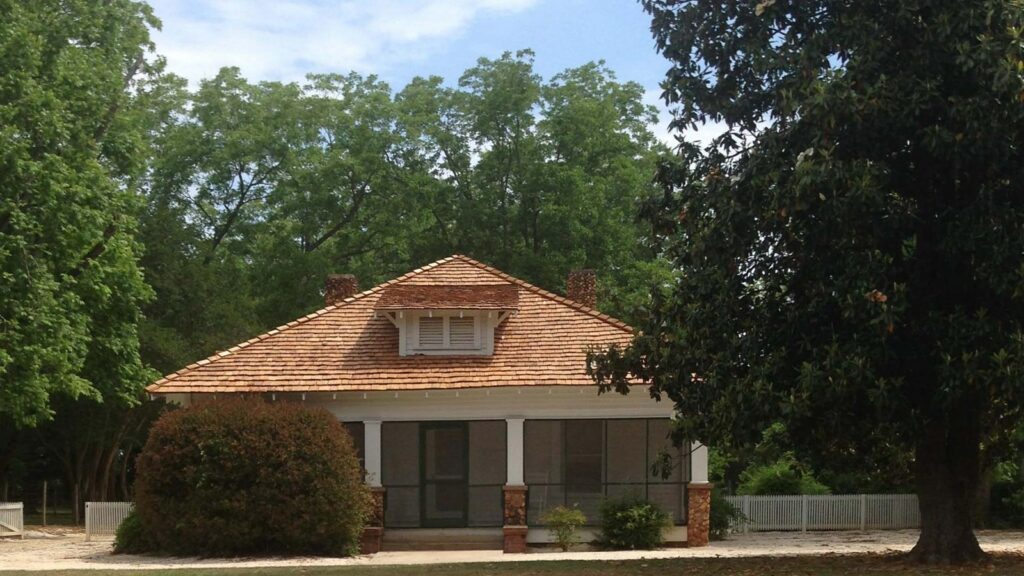
Plains became famous in 1976 when Carter ran his presidential campaign from the historic depot. Carter was raised in Plains, where as a boy he sold the peanuts harvested on his family’s farm to the townspeople. Carter and his wife, Rosalynn, returned to Plains at the end of his presidential term in 1981. Visitors to Plains can tour the Jimmy Carter National Historic Site, which includes President Carter’s boyhood farm, his high school, and the railroad depot, all managed by the National Park Service.
Another area attraction is the SAM Shortline Excursion Train. This historic train line, which created a direct route between Savannah, Georgia, and Montgomery, Alabama, by way of Americus, dates back to 1888. Visitors can ride the train through the countryside of southwest Georgia between Cordele and Archery. Tourists can also visit the Plains Historic District, which is listed on the National Register of Historic Places.






